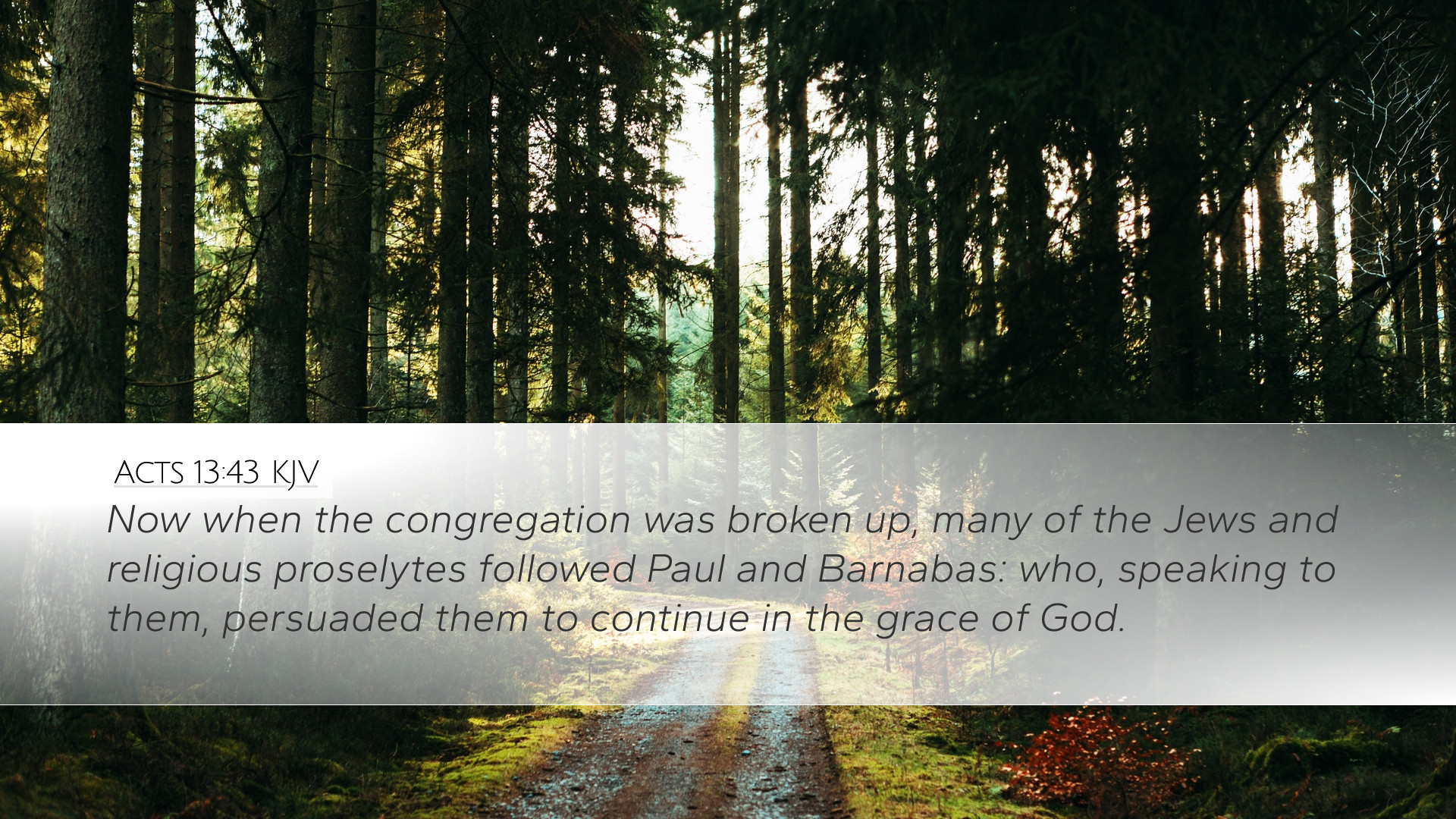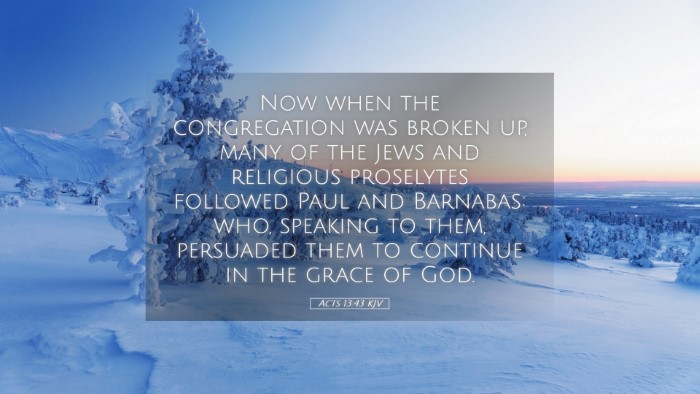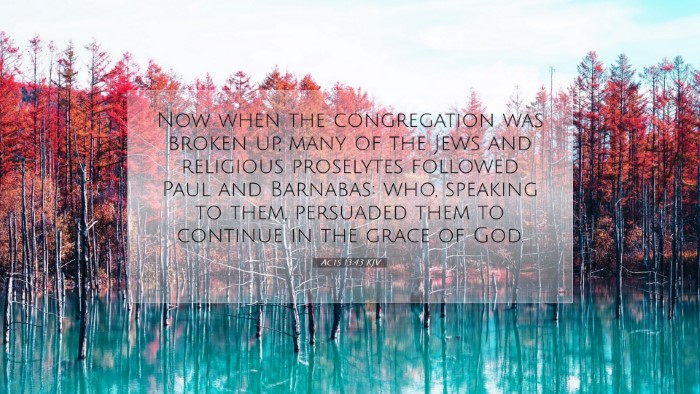Commentary on Acts 13:43
Verse: "Now when the congregation was broken up, many of the Jews and religious proselytes followed Paul and Barnabas: who, speaking to them, persuaded them to continue in the grace of God."
Introduction
This verse marks a significant moment in the missionary journey of Paul and Barnabas, highlighting the response of the Jewish community and proselytes to the gospel message. The dynamics of early Christian evangelism are well illustrated here, and the motives that draw the followers to these apostles merit careful examination.
Insight from Matthew Henry
Matthew Henry emphasizes the idea that the “congregation was broken up” signifies the conclusion of a gathering that was spiritually enriching. He notes that many Jews and “religious proselytes” were drawn to Paul and Barnabas, seeking the truth they preached. Henry points out that there is a distinction between those who attended out of mere tradition and those who were genuinely interested in the message of grace offered by Paul and Barnabas.
- Desire for Truth: The Jews and proselytes' desire to understand the grace of God reflects a universal longing for spiritual reality in contrast to legalistic observance.
- Following after the Apostles: Their decision to follow Paul and Barnabas indicates a significant commitment, suggesting the apostles' compelling preaching.
- Endurance in Grace: The exhortation to “continue in the grace of God” implies that spiritual growth is sustained by continually relying on God's grace.
Insights by Albert Barnes
Albert Barnes provides a keen observation on the phrase “who, speaking to them, persuaded them.” He interprets the active engagement of Paul and Barnabas as fundamental to their ministry. They did not just preach; they nurtured a dialogue that encouraged deeper exploration of scriptures and the implications of grace.
- Active Ministry: Barnes underscores the importance of personal persuasion in ministry — the role of conversation and encouragement in faith development.
- Religious Proselytes: By noting that proselytes followed, he highlights the inclusive nature of the early church, reaching out beyond ethnic and traditional boundaries.
- Grace and Growth: Barnes emphasizes that “continuing in grace” involves active participation and vigilance in the faith journey.
Reflections from Adam Clarke
Adam Clarke explores the cultural context, noting the diverse nature of the audience present. This diversity underlines the missional intent of the early church, catering to various backgrounds whilst unifying them under the gospel of grace.
- Cultural Diversity: Clarke points to the necessity for understanding varied cultural perspectives when sharing the gospel.
- Encouragement to Persevere: He stresses the importance of the word “persuaded,” indicating that faith often requires encouragement from leaders.
- Continuity of Grace: Continuing in grace suggests a deepening relationship with God, where believers actively engage with their faith.
Theological Implications
This verse not only sheds light on the early church's evangelism but also carries substantial theological significance:
- Grace as a Central Theme: The concept of grace is paramount in this passage and throughout the New Testament, illustrating a departure from law-based religion to faith-oriented spirituality.
- Community and Discipleship: The gathering of believers signifies the importance of community in nurturing faith. The act of following and engaging with leaders fosters growth.
- Continuity of the Faith Journey: The call to “continue” implies that faith is not a one-time event but an ongoing relationship that requires commitment and active participation.
Conclusion
Acts 13:43 provides a rich tapestry of thought for pastors, theologians, and students of Scripture. It challenges them to reflect on their interactions within the faith community and their role in encouraging continual growth in grace. The verse stands as a reminder of the transformative power of the gospel to draw individuals from diverse backgrounds and to nurture them in the loving grace of God.


